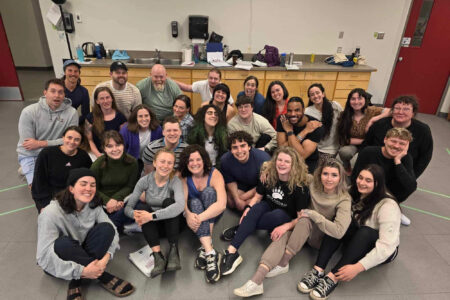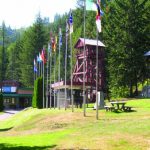Notes from the Shadows: Remembering war, injustice, and other unreasonable aspects of human history
War and Remembrance, Feeling and Reasoning
A month ago I wrote about Canada’s war in Afghanistan and concluded with a note that on November 11, I will be at the Nelson cenotaph protesting war. My theme on the radio program I’ve hosted for the last four seasons has been the history of war. During research for the show, I came upon this very wise conclusion by a Canadian author J. F.Vance. His book, Death so Noble, persuasively documents that ‘the myth of The Great War (WWI) in Canada’ portrayed the war as a nation-building event establishing a proud identity for Canadians and unifying us, but the observed reality of Canada was fragmentation–among Anglophones originating from Great Britain, Francophones in Quebec, Natives, immigrants from Europe, and between social classes. The elite opinion-makers wanted a myth, but ordinary Canadians added their own meaning to the War.
Vance sums up that it is not true to say only that the myth was “elite manipulation” because all sorts of Canadians did find meaning in the war as a noble sacrifice by our soldiers in a profoundly worthwhile and justified conflict. Canadians “did more than embrace the myth: they helped to create it. By their very actions …[ordinary] people played a role in nurturing the nation’s memory of the war and giving it life within their consciousness as Canadians. That memory sprouted from the grief, the hope, and the search for meaning of a thousand Canadian communities.”
I have taken to heart Vance’s point about using only my intellect and reason to analyze and understand the War.
By being dispassionate and coolly sensible, exposing lies about the war, I will not convince people that their loved ones were maimed or killed for no good reason and that I am educating them by dissecting the acts of politicians and generals. My attitude of disengagement will make them angry with me and I have indeed experienced that anger from families and from soldiers because of my Remembrance Day demonstrations for peace. I am asked to leave, often.
I will protest, still. But I have a new understanding of how to speak about war, so I may respect the feelings of those who grieve their dead lost in an old war.
Truth and Reconciliation
September 21 was the UN’s international Day of Peace. June 21 is Canada’s day to celebrate our First Nations peoples. This is how I connect the topic above to my next subject, how Canadians might do something about our history of abuse of Natives and try to redress centuries of injustice to them.
Having just taught a lesson to seniors at a Learning-in-Retirement program, on the subject of Spain’s Conquest of native Aztec and Incan empires, the plight of Canada’s natives is front of mind for me. Feeling guilty that my white forefathers and foremothers were egregious racists and endorsed government policies to assimilate, even exterminate, Natives, is not enough. I have to act in accord with my conviction that Canada, as a society, is obligated to create a path to reconciliation and somehow to restitution.
What is the way to satisfy native desire for justice in the present and also to do something meaningful to right wrongs our society has done them in the past?
I confess myself unable to offer a straightforward answer to that. Injustice in history is a fact that many people have to endure and never have resolution. I am not sure what is possible to redress a fact as gargantuan as European appropriation of the land and the futures of First Nations from the era of Columbus until this day. How can we ever compensate the living natives here for a half-millennium of taking their culture, their economy, and even their lives?
The recent protest against a Nanaimo newspaper for printing a letter to the editor with racist attitudes toward natives, is a very troubling event for anyone who wonders how to talk and write about native issues, as I do. It obviously is offensive to natives to publish the bigoted statements of white Canadians. But it is true Canadians hold such attitudes. Can we deal with such a truth? And will we publish the truth of our own history and our own responsibility for racist government policies in the past? It is not just governments who made the choices that persecuted and abused natives. Canadians acquiesced. Silence is consent when voters say nothing about systemic racism in schools, workplaces, police stations and media.
South Africa had a Truth and Reconciliation Commission to address years of racist Apartheid. What is our commission accomplishing? How can my readers contribute to the resolution of our national historical disgrace, the organized injustice of native reserves, native political clientage, poverty, and bigotry?
Western Consciousness and the Celebration of Reason
Historians are becoming better at raising their self-awareness about the methods we use to tell what happened in the past. For two hundred years, the habit of our elite classes, in universities, in government, in business, and in our culture, have upheld a version of “the West” and its civilization, that holds “Reason” and “Science” as marks of our marvelous globe-conquering ways of ordering governments, societies, economies and technologies.
It was the norm in my youth for university professors of History to point we undergrad students back to Greece as the origin of our fabulous Western tradition. Rationalism was the genius of the Hellenic mind. It might be admitted that the Semitic mind, the mind of the Old Testament, had deep roots in our tradition also, planted there by Christianity, yet religion has been on the run before reason and materialist science since the eighteenth century. When a Western intellectual wanted to establish his or her grasp of what it meant to be an elite Westerner, they had to show how well they knew their Greek history and ancient Greek philosophers and scientists.
I am happy to say that the emerging global culture has made Westerners re-think our “superiority.” We are dumbfounded by the resurgent power of religion as seen in Islam and in Christianity. Materialism has not brought utopia, but rather a sense that our world is out of control, in climate, in ecological ruin, in overpopulation, famine, war, epidemic, and social pathologies not seen before. We cannot believe that traditional answers to questions of life and humanity are persuasive anymore, if they stick to Western clichés current in the 1950’s.
The Greeks were not just rational: historians are now admitting this more and more, in reaction to the discovery that our tradition is not progressive but has ruined human habitat and brought us to a threshold of too-many crises. The Greeks had a very dark shadow side, an irrational, spiritual, religious, and passionate facet that Socrates and Plato, those geniuses of rational analysis, do not represent to us. Athens was not just a democracy of intelligent citizens debating their acts of government, it was also a society of unreasoning folk led by passion to do some awful things in its wars of empire and enslavement.
The poets and playwrights, the practitioners of Mystery religion, the generals and politicians, knew the dark side of human motivation — and the violence and atrocity of Greek history are proofs. Historians used to downplay this history, but less so now. Rationalists today are easy to spot. They criticize religion as unnecessary, believe science still has all the big answers, and deny human nature: Humans have no nature, just culture planted into our brains.
Summing up
War, conquest, and consciousness have figured in my column today.
War has made Canada a rich nation, because we were on the winning side in our wars, and we have taken this land from the original occupants by threat of violence, if not by actually fighting wars of conquest against natives, as the Spanish and the Americans did. On Remembrance Day, we commemorate our wars and honour our fallen soldiers as sacrificial heroes.
Conquest of the natives has left us a legacy of guilt, injustice and inequality that is out of harmony with national values of fairness and democracy. “Truth and Reconciliation” are now part of our national discourse. Perhaps we will indeed lay a new trail and break from old injustices. We will do that only by transforming our consciousness, by learning and talking about the truth.
Canadian consciousness is part of the Western civilization’s way of knowing. We are coming to grips more realistically now, I hope, with the fact of the passionate, the irrational and even anti-rational sides of humanity, that are not going to be wished away.
Canadian attitudes to making war and to our native issues need to be resolved with full recognition that policy is not only made by reasoning things out. Our spirits and our feelings, not subject to the razor-edge of rational dissection, will and must have their due.
Charles Jeanes is a Nelson-based writer. The previous edition of The Arc Of The Cognizant can be found here.
























